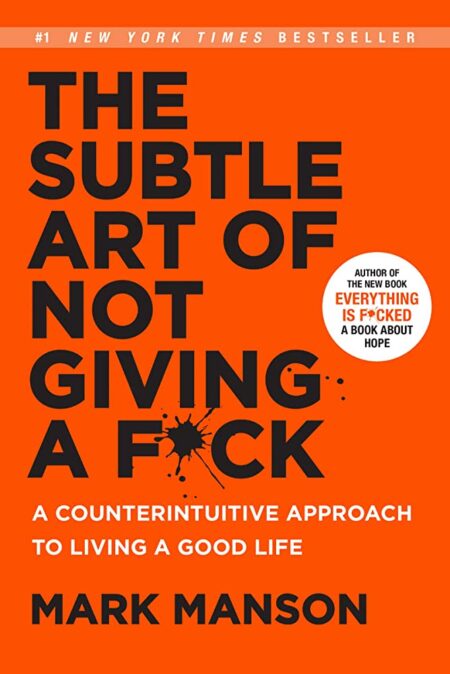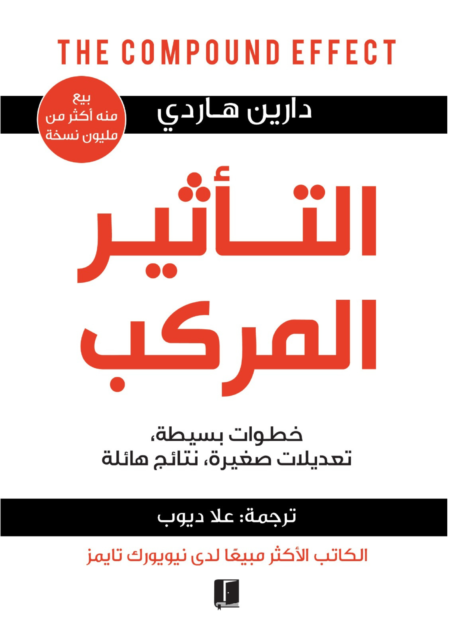-
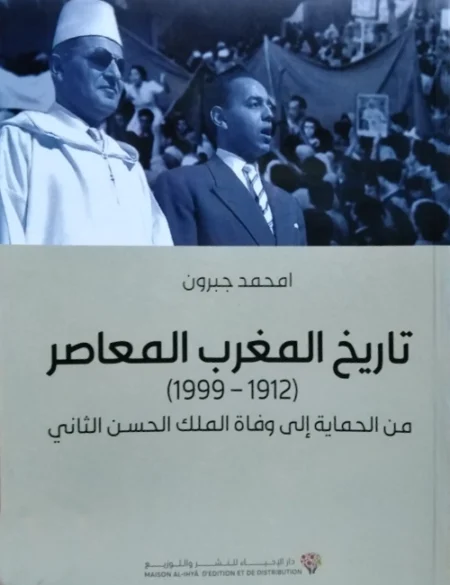
تاريخ المغرب المعاصر (1912-1999) من الحماية إلى وفاة الملك الحسن الثاني
200.00 DHتقديم كتاب: تاريخ المغرب المعاصر (1912-1999) من الحماية إلى وفاة الملك الحسن الثاني
في إطار أنشطتهما العلمية والثقافية التي تؤثث مكونات برنامجهما برسم سنة 2022م، وبدعم من وزارة الشباب والثقافة والتواصل -قطاع الثقافة، وجماعة العرائش، تنظم كل من جمعية أصدقاء المكتبة الوسائطية عبد الصمد الكنفاوي وجمعية أرشيف العرائش لتوثيق التراث الثقافي والبحث التاريخي، لقاءً ثقافيا لتقديم كتاب: « تاريخ المغرب المعاصر (1912-1999) من الحماية إلى وفاة الملك الحسن الثاني » للدكتور امحمد جبرون.
بمشاركة: صاحب الكتاب، المفكر والمؤرخ وأستاذ التعليم العالي، الدكتور امحمد جبرون. والكاتب والناقد، عزيز قنجاع في قراءة نقدية للعمل. و الباحث، محمد عزلي مسيرا للقاء.
وذلك برحاب المكتبة الوسائطية عبد الصمد الكنفاوي بالعرائش، يوم الجمعة 03 يونيو 2022 ابتداءً من الساعة السادسة. -
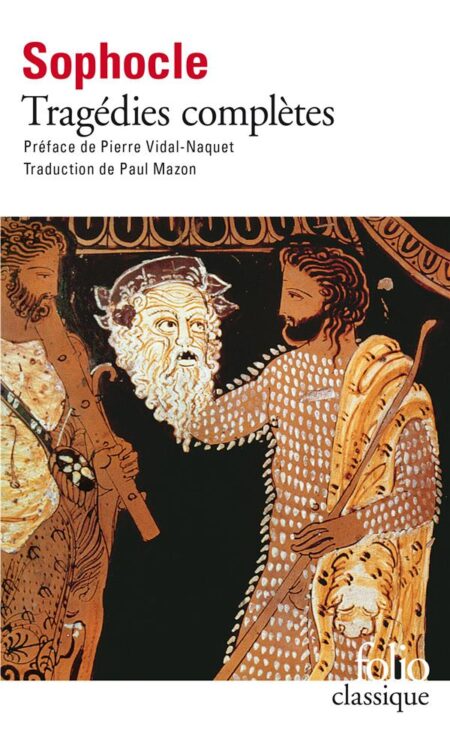
Tragédies complètes – Sophocle
111.00 DHTraduit par Paul Mazon ŒDIPE : Ô mes enfants, où donc êtes-vous ?… Sur vous aussi je pleure… quand je songe combien sera amère votre vie à venir et quel sort vous feront les gens… Quand vous atteindrez l’heure du mariage, qui voudra, qui osera se charger de tous ces opprobres faits pour ruiner votre existence, comme ils ont fait pour mes propres parents ? Est-il un crime qui y manque ? Votre père a tué son père ; il a fécondé le sein d’où lui-même était sorti ; il vous a eues de celle même dont il était issu…Qui, dès lors, vous épousera ? Personne, ô mes enfants, et sans doute vous faudra-t-il vous consumer alors dans la stérilité et dans la solitude… CREON : Tu as assez pleuré, rentre dans la maison » Poeta divinus » (Cicéron)
-

Harry Potter and the Philosopher’s Stone
120.00 DHThe boy wizard Harry Potter has been casting a spell over young readers and their families ever since 1997. Now the first book in this unmissable series celebrates 25 years in print! The paperback edition of the tale that introduced us to Harry, Ron and Hermione has been updated and dressed in silver to mark the occasion. It’s time to take the magical journey of a lifetime …
Harry Potter has never even heard of Hogwarts when the letters start dropping on the doormat at number four, Privet Drive. Addressed in green ink on yellowish parchment with a purple seal, they are swiftly confiscated by his grisly aunt and uncle. Then, on Harry’s eleventh birthday, a great beetle-eyed giant of a man called Rubeus Hagrid bursts in with some astonishing news: Harry Potter is a wizard, and he has a place at Hogwarts School of Witchcraft and Wizardry. An incredible adventure is about to begin!
These editions of the classic and internationally bestselling Harry Potter series feature thrilling jacket artwork by award-winning illustrator Jonny Duddle. They are the perfect starting point for anyone who’s ready to lose themselves in the greatest children’s story of all time. Available for one year only, Harry’s first adventure – Harry Potter and the Philosopher’s Stone – has been emblazoned in silver and refreshed with extra content including a new Hogwarts crest illustration and Q&A with Jonny Duddle, plus fun facts exploring the origins of names such as Albus Dumbledore, Hedwig and other favourite characters.
-

سقطرى
110.00 DHلماذا تشعر الآن وكأنها عجوزٌ على الرغم من كونها في الواحد والعشرين من عمرها! تناهى إلى مسامعها صوت خطوات تقترب، اعتدلت في جلستها وتواثبت دقات قلبها وهي تشرد نـحو الباب، وكلما اقتربت تلك الخطوات من باب غُرفتها كانت دقات قلبها تتسارع بوتيرة أكبر، تأرجحت الثّريا المُعلّقة في السقف بجنون، ارتعشت الإضاءة وكأنها ستخفت، ثم اشتدت وغمرت المكان بقوة من جديدٍ وكأن يدًا خفيّةً تتلاعب بها، طرق أحدهم على الباب ثلاث طرقات بقوة، ثم انتظر قليلًا وأعاد الطرق مرة أخرى بتصميمٍ شديدٍ عندما لم تُجبه، كانت ترجو من الله أن ينصرف هذا الطارق، فهي تخشى أن ينفرط عقد لسانها وتبوح بكل شيء، فُتح الباب ببطءٍ وكان له أزيز مُخيف، ودلف ضيفها، واقترب وعيناه تُشعّان شغفًا وفضولًا، وجلس في سكون ينتظر منها أن تبوح له بكلّ الأسرار، ظلت تُحدّق إلى وجهه حتى ظن أنها لن تتكلم، وأخيرًا ازدردت ريقها، وعادت بذاكرتها لعشر سنوات مضت، وبدأت تُخرِج ما بجُعبتها من أسرارٍ.
ثمّة حكايا غريبة ستُروَى هنا! -
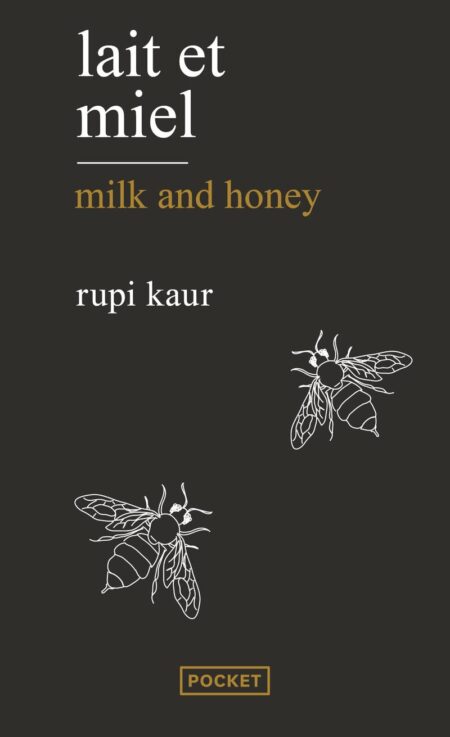
Lait et miel
95.00 DHvoici le voyage d’une
survie grâce à la poésie
voici mes larmes, ma sueur et mon sang
de vingt et un ans
voici mon cœur
dans tes mains
voici la blessure
l’amour
la rupture
la guérison– rupi kaur –
» lait et miel est un recueil poétique que toutes les femmes devraient avoir sur leur table de nuit ou la table basse de leur salon. Accompagnés de ses propres dessins, ses poèmes, d’une honnêteté et d’une authenticité rares, se lisent comme les expériences collectives et quotidiennes d’une femme du XXIe siècle. » Erin Spencer – Huffington Post
-
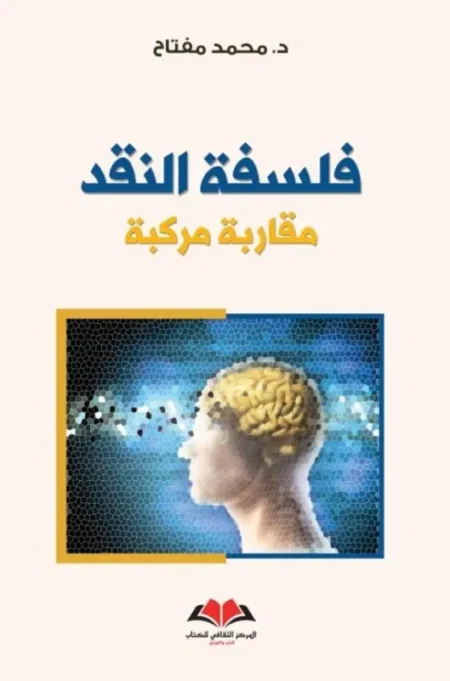
فلسفة النقد : مقاربة مركبة
70.00 DHكتاب « فلسفة النقد: مقاربة مركبة » للكاتب محمد مفتاح. هذا الكتاب هو دراسة في فلسفة النقد الأدبي وتحليله، ويناقش مفتاح فيه مفاهيم مثل الجمالية والأخلاق والمعرفة والحقيقة والتفسير.
يتناول الكتاب أيضًا العلاقة بين النقد والفلسفة، ويتطرق إلى المدارس النقدية المختلفة ومناهجها وتحليلها، ويوضح كيف أن التفسير النقدي يساعد في فهم النصوص الأدبية بصورة أفضل.
يمثل هذا الكتاب مرجعًا مهمًا لطلاب الأدب والفلسفة والنقد، كما يمكن أن يستفيد منه المهتمون بالموضوع والأدباء والنقاد.
-
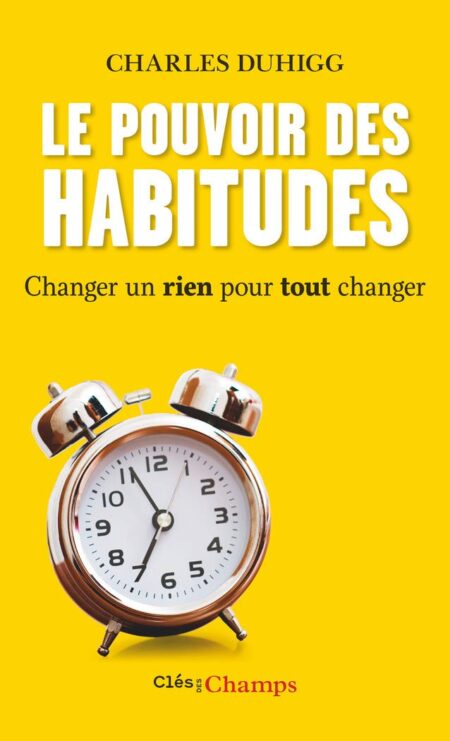
Le pouvoir des habitudes: Changer un rien pour tout changer
139.00 DHLisa souffrait de boulimie, d’alcoolisme, de tabagisme et de surendettement. Un jour, tout a changé : en modifiant une pièce du puzzle de son existence, elle est sortie du cercle vicieux de ses habitudes toxiques. Comment l’entreprise Starbucks est-elle devenue un mastodonte générant plus de 10 millions de dollars de chiffre d’affaires par an ? En changeant une habitude de management. L’habitude est le pilote automatique de notre cerveau. S’appuyant sur les dernières recherches en psychologie et en neurosciences, Charles Duhigg en dévoile le fonctionnement et révèle ce principe élémentaire : si notre vie est faite d’ « habitudes clés » qui régissent nos conduites à notre insu, il suffit d’en modifier une pour créer un cercle vertueux. En changeant de clés, vous ouvrirez des portes insoupçonnées !
-
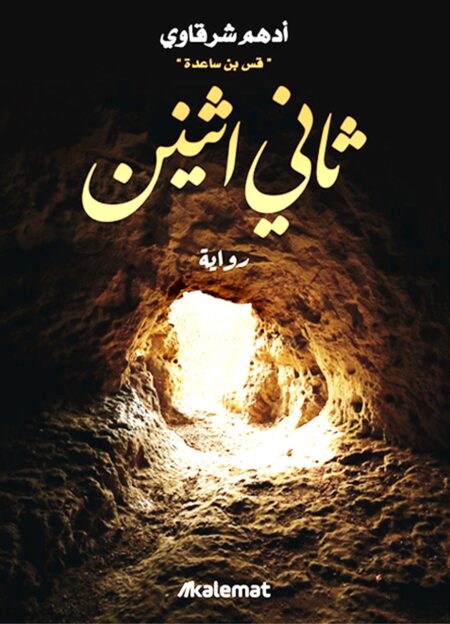
ثاني اثنين
109.00 DHوأتى من بعيدٍ تفوحُ منه رائحة الصحراء… عربيٌ خالص لا شِية فيه! نحيلٌ كأنه سُنبلة قمح! دقيق السَّاقين كأنه عدَّاء، ولكن ثمة شيء فيه يخبرك أنَّ له سِباقاً غير سباقات النّاس! وجهه أبيض نجا من شمس الصحراء بأعجوبة! ظهره فيه انحناء قليل كأنّه كان يحملُ شيئاً ثقيلاً على كتفيه طوال عمره، ولكن نظراته
الثاقبة تخبرك أن هذا الحِمل لم يكن بإمكان غيره أن يحمله!
لحيته مخضوبة بحناء مائلة إلى الحُمرة كأنَّ الشمس لحظة المغيب لم تجد لها مأوى غيرها!
ثيابه بالية، ولكن الرجل عليه مسحة عراقة التاريخ!
أردتُ أن أسأله: من أنتَ؟!
ولكن ثمة رجال تفقِدُ لغتكَ في حضرتهم، وقد كان واحداً منهم!
أطلتُ النظر إليه وصمتي يُكبلني، وفضولي يقتلني لأعرف من هو ولكنه أزاح عني كل هذا حين قال: لكَ السَّلام.
صوته عذب كأن الحروف تخرج من حِجر إسماعيل لا من فمه، فيه رِقَّة كدعوات الأمهات، وخشوع كتلاوة سورة الرحمن! -

مستقبل المشاعر
120.00 DH« بحثٌ ثاقبٌ لما تفعله كلٌّ من وسائل التواصل الاجتماعي والذكاء الاصطناعي، وتكنولوجيا الروبوت والعالم الرقمي لعلاقاتنا مع بعضنا بعضًا ومع أنفسنا. ليس هناك شكٌّ في أن التكنولوجيا سهّلت التواصل فيما بيننا، وأصبح من الأسهل أيضًا تجاهُل شخصٍ ما عندما يتحدّث إلينا عبر الإنترنت. لماذا تجهد نفسك بفهم الغربا
ء -أو حتى المعارف- عندما يمكنك التنمر عليهم أو حظرهم، أو فقط نقر زر « »إلغاء الصداقة » » وعدم النظر إلى الوراء مجددًا؟ على الرغم من أن ذلك قد يكون مرضيًا لفترة وجيزة، فإنه من المحتمل أيضًا أن يؤدي إلى تآكل إحدى أهم سماتنا البشرية: التعاطف.
كيف سيبدو المستقبل عندما يتلاشى هذا الجزء الأساسي من أجل مجتمعٍ مسالمٍ وصحّيٍّ ومُنتِج؟ الجواب التحذيري ولكن المفعم بالأمل يوجد في هذا العمل عن المشاعر المهددة بالانقراض.
تُشارك كيتلين أوجلوك فيليبس في مستقبل المشاعر قصصها الشخصية بالإضافة إلى قصص الأطباء ورجال الأعمال، والمدرسين والصحفيين والعلماء حول دفع الابتكار والتكنولوجيا إلى الأمام دون الخضوع للعزلة. هذا الكتاب مخصص لأي شخص مهتم بكيفية عمل أدمغتنا، وكيف يتم إعادة توصيلها بمهارة لتعمل بشكل مختلف، وما يعنيه ذلك في النهاية بالنسبة إلينا بصفتنا بشرًا.« »تحدي القرّاء للتفكير فيما يعنيه أن يكونوا متعاطفين في عصر تقوده التكنولوجيا، سيكون هذا صدًى لدى أولئك الذين يحاولون مواصلة الاعتماد على التكنولوجيا بشكل دائم مع الإنسانية والقدرة على التعاطف » ».
– صحيفة المكتبة.« »تستكشف الصحفية والمؤلفة الشهيرة فيليبس التفاعل بين المشاعر الإنسانية والتكنولوجيا في استطلاع يؤدي نطاقه المتغير باستمرار إلى مجموعة من الأجزاء المثيرة للاهتمام… نبرة فيليبس تبدو متفائلة بشأن الأجهزة والبرامج التي تغطيها في هذا الكتاب المحفز بشكل متقطع » ».
– ويكلي بابلشيرز.« »في بدايتها المقنعة، انتقدت الصحفية والمحررة فيليبس ثقافةً تُعطي للتكنولوجيا أولاويةً كبيرة على الروابط البشرية الحقيقية، وتتساءل عمَّا إذا كان يمكن أن يوجَد الاثنان بشكل متآزر… تقرير مفيد من المؤكد أنه سيثير نقاشًا حول دمج التعاطف بالتكنولوجيا الحديثة » ».
– مراجعات كركوس. -

ابنى مشتت الأنتباه
80.00 DHكلمة نتناقلها كثيرًا على الشفاه، حول أولادنا، هي: (مُشتت)، (لا يركز). هذا الكتاب محاولة لرصد هذه الكلمة وتحليلها، وفَهم معنى التشتت في الانتباه وعلاجه إن وُجِد. آملين أن نساعد أطفالنا ونحتويهم، ونحل المشكلة من جذورها لا أن تتضخم منها. أسأل الله أن ينفعكم وأطفالكم بالكتاب.
-

Faber-Castell Kneadable Art Eraser
15.00 DHKneadable Art Eraser, yellow, red, blue
Kneadable Art Erasers are the perfect choice for correcting charcoal, pencil and pastel work. They are easily kneadable and absorbent and leave no residue behind.
-

Staedtler – 24 Watercolour pencil karat® aquarell 125
220.00 DHWatercolour pencil
Metal case containing 24 watercolour pencils in assorted colours

